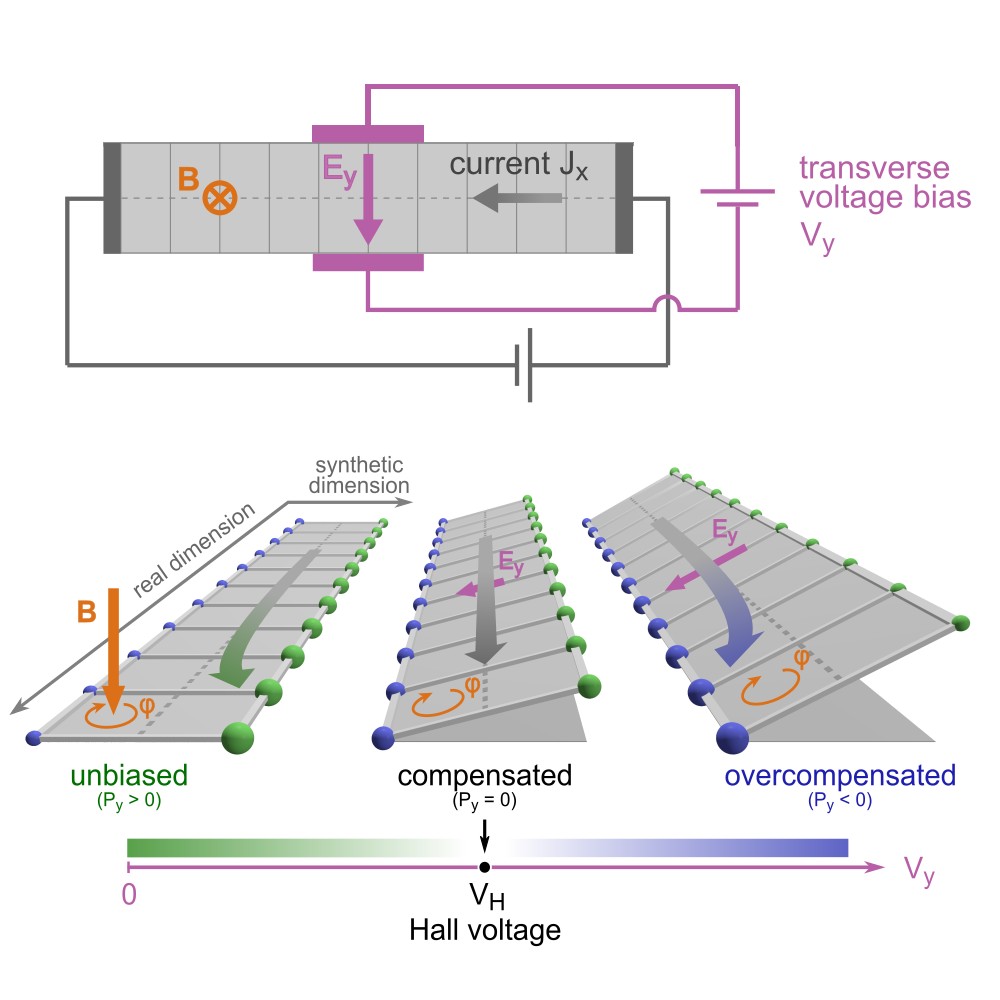T.-W. Zhou, T. Beller, G. Masini, J. Parravicini, G. Cappellini, C. Repellin, T. Giamarchi, J. Catani, M. Filippone, L. Fallani
Measuring Hall voltage and Hall resistance in an atom-based quantum simulator
Nat. Comm. 16, 10247 (2025)
T.-W. Zhou, G. Cappellini, D. Tusi, L. Franchi, J. Parravicini, C. Repellin, S. Greschner, M. Inguscio, T. Giamarchi, M. Filippone, J. Catani, and L. Fallani
Observation of Universal Hall Response in Strongly Interacting Fermions
Science 381, 427 (2023)
D. Tusi, L. Franchi, L. F. Livi, K. Baumann, D. Benedicto Orenes, L. Del Re, R. E. Barfknecht, T. Zhou, M. Inguscio, G. Cappellini, M. Capone, J. Catani, L. Fallani
Flavour-selective localization in interacting lattice fermions
Nat. Phys. 18, 1201 (2022)
G. Cappellini, L. F. Livi, L. Franchi, D. Tusi, D. Benedicto Orenes, M. Inguscio, J. Catani, L. Fallani
Coherent Manipulation of Orbital Feshbach Molecules of Two-Electron Atoms
Phys. Rev. X 9, 011028 (2019)
L. Franchi, L. F. Livi, G. Cappellini, G. Binella, M. Inguscio, J. Catani, L. Fallani
State-dependent interactions in ultracold 174Yb probed by optical clock spectroscopy
New J. Phys. 19, 103037 (2017)
L. F. Livi, G. Cappellini, M. Diem, L. Franchi, C. Clivati, M. Frittelli, F. Levi, D. Calonico, J. Catani, M. Inguscio, L. Fallani
Synthetic Dimensions and Spin-Orbit Coupling with an Optical Clock Transition
Phys. Rev. Lett. 117, 220401 (2016)
C. Clivati, G. Cappellini, L. F. Livi, F. Poggiali, M. Siciliani de Cumis, M. Mancini, G. Pagano, M. Frittelli, A. Mura, G. A. Costanzo, F. Levi, D. Calonico, L. Fallani, J. Catani, M. Inguscio
Measuring absolute frequencies beyond the GPS limit via long-haul optical frequency dissemination
Opt. Express 24, 11865 (2016)
M. Mancini, G. Pagano, G. Cappellini, L. Livi, M. Rider, J. Catani, C. Sias, P. Zoller, M. Inguscio, M. Dalmonte, L. Fallani
Observation of chiral edge states with neutral fermions in synthetic Hall ribbons
Science 349, 1510 (2015)
G. Pagano, M. Mancini, G. Cappellini, L. Livi, C. Sias, J. Catani, M. Inguscio, L. Fallani
Strongly Interacting Gas of Two-Electron Fermions at an Orbital Feshbach Resonance
Phys. Rev. Lett. 115, 265301 (2015)
G. Cappellini, P. Lombardi, M. Mancini, G. Pagano, M. Pizzocaro, L. Fallani, J. Catani
A compact ultranarrow high-power laser system for experiments with 578nm Ytterbium clock transition
Rev. Sci. Instrum. 86, 073111 (2015)
G. Pagano, M. Mancini, G. Cappellini, P. Lombardi, F. Schäfer, H. Hu, X.-J. Liu, J. Catani, C. Sias, M. Inguscio, L. Fallani
A One-Dimensional Liquid of Fermions with Tunable Spin
Nature Phys. 10, 198 (2014)
G. Cappellini, M. Mancini, G. Pagano, P. Lombardi, L. Livi, M. Siciliani de Cumis, P. Cancio, M. Pizzocaro, D. Calonico, F. Levi, C. Sias, J. Catani, M. Inguscio, L. Fallani
Direct Observation of Coherent Interorbital Spin-Exchange Dynamics
Phys. Rev. Lett. 113, 120402 (2014)



